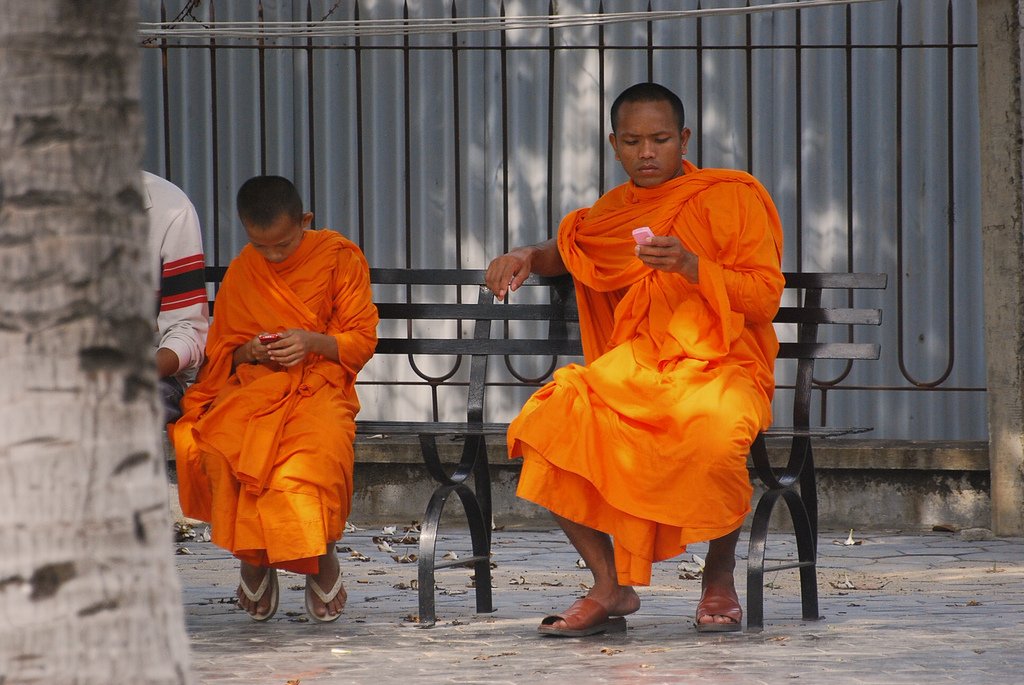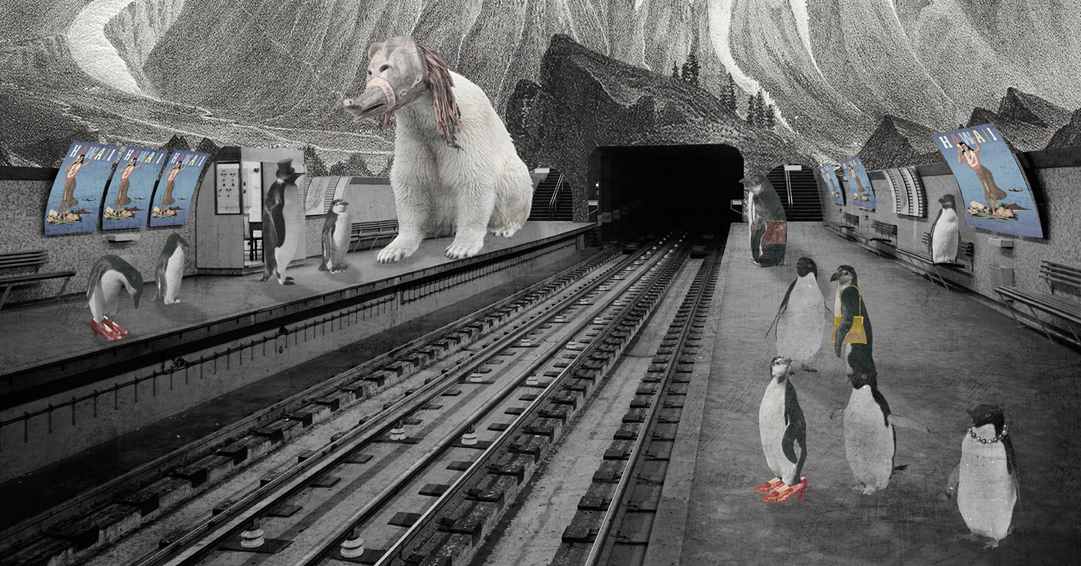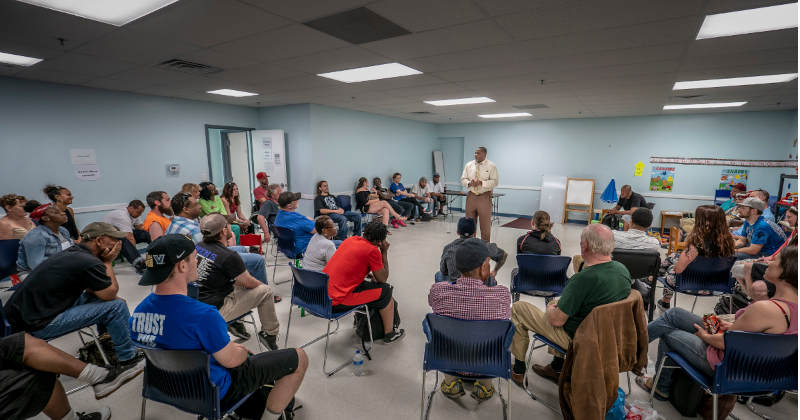“It is through gratitude for the present moment that the spiritual dimension of life opens up.”
“Our scientific power has outrun our spiritual power. We have guided missiles and misguided men.”
“Just as a candle cannot burn without fire, men cannot live without a spiritual life.”
“You have to be in the world to understand what the spiritual is about, and you have to be spiritual in order to truly be able to accept what the world is about.”

When an idea for a post comes to me, I try to assess the idea on two standards: 1) does it address a universal issue at the core of many problems, and 2) is it relatively timeless – an idea that has been tossed around for centuries but still invites conversation. While I often fall into the trap of responding to a current flap and/or one that has a very short lifespan (for example, I sometimes throw trash into the Trump Dump or throw my two cents into a raging rathole), my goal is to exercise restraint in venturing too far from timeless, universal issues.
As I was reading several books over the last few months (which I will briefly summarize later), it occurred to me that our level of spiritual functioning has been and still is the root cause of most of the problems we are facing. We all know about physical functioning and are bombarded daily with new tips for eating, exercising, and getting fit. We have also been hearing a lot about executive functioning, which deals with how we process our thoughts and feelings—the CEO of the mind, heart, and gut, so to speak.
While spiritual health continues to gain relevance in direct proportion to the decline of participation in religious institutions, I haven’t seen much about how our level of spiritual functioning determines how we make decisions and engage in day-to-day activities.
As my friend Artie would ask,
“Who is the You You-ing You? Is it the physical You, the emotional You, the intellectual You, or the spiritual You?”
In this post, I want to make the case that the spiritual You has the greatest impact on our own lives and on the lives of others.

Spiritual functioning for some is primarily a belief in God and active participation in organized religion. For me, it’s more about connecting with our spiritual selves through reflection, meditation, time in nature etc. The goals of spiritual functioning are to deepen relationships with oneself, others, and a higher purpose. The objective is to stay calm in the midst of a crisis and to cultivate hope when feelings of helplessness and hopelessness seem overwhelming.
The characteristics of spirituality revolve around the notions of meaning, value, transcendence, connection, community, compassion, contribution, service, and growth. Some of the principles underlying spiritual functioning are acceptance, courage, honesty, patience, humility, love, openness, gratitude, discipline, and integrity.
With that understanding of the components, principles, and goals of spiritual functioning, let’s return for a moment to the books that prompted this post. I will start with the three insights I had after reading the books and then give a brief summary of each.
- Humans are blessed with the capability to imagine anything and are cursed by their commitment to believe with absolute certainty what they imagine.
- We create systems that victimize people and then blame the victims for being victimized.
- The cultural context in which we live has a much greater impact on our thoughts and behaviors than we dare realize.
If you take a closer look, you will see that #1 is individual in nature, #2 is organizational in nature, and #3 is environmental in nature.
Now, let me review some of the books that led me to those conclusions.
How to Say Babylon, by Safiya Sinclair, shares a true story of how a fundamentalist parent tries to snuff out the light of any signs of rebellion.
In this case, the author was a budding poet whose mother encouraged her personal search and whose father, a gifted musician and fierce disciple of Rastafarianism, insisted on obedience to his way of thinking. While both father and daughter used art to express their beliefs, harmony only came when everyone conformed to the father’s dictates. Under her father’s controlling eye, the doors for exploration of different avenues for being and doing are tightly locked. He is completely convinced of his righteousness and forces isolation on the family. Triumphantly, Sinclair’s imagination continues to blossom even in the darkness of her home, and she manages to break free from the constraints of the beliefs, systems, and culture that all conspired to limit her growth.
The Best Minds, by Jonathan Rosen, reveals the tortured intersection between genius and madness that plagues so many people with mental health challenges.
In this case, another true story, Rosen reconstructs his long friendship with Michael Laudor, who made headlines in the New York Times in 1998 as a Yale Law School graduate destigmatizing schizophrenia. Laudor was a brilliant young man from New Rochelle who graduated from Yale in three years and worked for Bain for one year prior to experiencing a psychotic break. After almost a year in a psychiatric hospital, he was accepted at Yale Law and was able to graduate despite his schizophrenia. His story became so well publicized that he was able to secure million-dollar contracts for a proposed book and movie rights based on that book. Sadly, his condition deteriorated under all the pressure (and his refusal to take medicine) to the point that he ended up stabbing his pregnant girlfriend to death with a kitchen knife, confusing her with a windup doll.
Rosen’s memoire is a well-researched work on how society prioritizes profits, quick fixes, and utopian dreams over the long and hard work of mental health care.
In this case, Laudor’s “imaginations” were unmanageable without medication, the systems that were supposed to help him were dysfunctional, and the culture in which he lived created pressures that ultimately broke him.
The Best Minds raises questions about the whole movement in mental health from de-institutionalization to community mental health without sufficient systems and resources in place to make that transition work.
My colleague, Bill O’Brien, who worked at the Center for Psychiatric Rehabilitation for 20 years, witnessed that whole transition firsthand. When I asked his opinion about the book, he responded:
“The ideals of the 1960s got derailed by the economic troubles of the 1970s. By the 1980s, all commitment to fully funding community mental health had vanished. Psychiatric patients were devastated NOT because they had an illness but because they were poor. Managing symptoms was the easy part. Being unemployed and homeless, not so much. We failed them, and then we blamed them. The greatest support for them by the 2000s was TOLERANCE. And it was free. Attitudes changed. People were no longer freaked out because a guy was walking down the sidewalk talking to himself. That tolerance is fading thanks to GOP talk tracks, for example: ‘Guns don’t kill people; the mentally ill kill people. Lock ’em up.'”
Master Slave Husband Wife by Ilyon Woo is based on another true story. It begins in 1848 when an enslaved, mixed-race woman (Ellen) in Macon, Georgia, completes a daring escape from slavery with her husband (William) by disguising herself as a white man and by booking travel to Pennsylvania by train, steamboat, and carriage under her false identity.
Her husband accompanied her by pretending to be her “property.” It is a remarkable story of creativity and courage and a chilling reminder of how cruel slave owners could be in the pursuit of “fugitive slaves.”
The story continues by following them to Boston and Edinburgh, where they joined up with fellow abolitionists, Frederick Douglass among them, to fight against slavery and the whole system that supported it. By the time the American Civil War began, Ellen and William had international reputations and played a significant role in the events that led to the Civil War.
The book is a compelling tale about the power of individual beliefs, abhorrent systems, and cultures that normalize despicable behavior.
Sound familiar?
All of these books (How to Say Babylon; The Best Minds; and Master Slave Husband Wife) deal with universal and timeless issues:
- How do our beliefs drive behavior?
- How do systems and technologies reinforce and punish those beliefs?
- What role does the culture play in organizational or governmental change initiatives?
These same three issues are at the heart of the challenges we face today in education, health care, religion, politics, foreign relations, and many more. I would argue that the level of our spiritual functioning plays the most significant role in reaching positive outcomes in all these domains.
In How to Say Babylon, Sinclair’s determination and will to escape from an oppressive system succeeded because of the acceptance and openness of key subcultures that her growth-oriented mother enabled her to experience.
In The Best Minds, the belief that hard work, fame, and status would cure all ills came up against a broken mental health system whose devastating outcome was only delayed by the connection, compassion, and sense of community that Laudor found in some sub-cultures.

In Master Slave Husband Wife, Ellen and William were able to stay calm under horrible conditions to break free of an evil, government-sponsored system because people in the abolitionist culture were compassionate enough to enable them to transcend the shackles of slavery. Their spiritual courage gave them the strength to take enormous risks for their freedom.
Let me end with a quote from Lily Gladstone, the Native American star of the film Killers of the Flower Moon:
“Whatever that oppressive system is that sometimes develops with colonial governments, that moment of transcendence for all of us, those are the healing moments.”
I’m hoping we can elevate our level of spiritual functioning by bolstering our belief that it is possible to overcome oppressive systems, find moments of transcendence, and heal our divides. May it be so.



